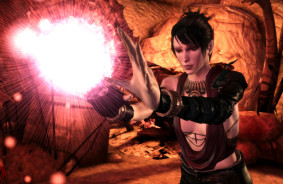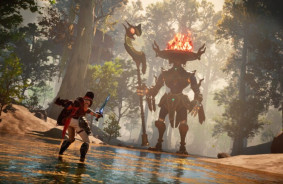AestheticSpartan, one of the developers and co-owners of the recently popular Steam clicker Banana, revealed that the game development team parted ways with one of the members due to his potential involvement in Steam fraud. The Banana developer assures that the team is not involved in fraud, and the earnings are entirely legal.
"As you all have heard, Theselions was involved in a bitcoin scam on the Steam market. We were not aware of this until recent videos started to point to it, and we almost immediately discussed the situation with the entire team. We gave him the opportunity to explain the situation to us, and we know that he demonstrates remorse and regrets what happened in the past."
Just a few days later, Banana burst into the top of Steam and outperformed games like Dota 2 and PUBG. Banana on Steam even briefly surpassed Counter-Strike 2 and became the most popular game (now second place). Let's try to understand how it all works and whether there is fraud involved.
How to play Banana
The game is very simple - click on the banana with the mouse. The goal is to collect as many bananas as possible. The game interface consists only of a minimalist window with a large banana in the center. You can also change the appearance of the banana (for money) or screen resolution.
"Banana is a clicker game where you click the banana! In Banana, you click the banana to get even more bananas! Every 3 and 18 hours you get a banana," the official description says.
After a certain number of clicks, the user receives bananas in their Steam inventory - in the vast majority of cases, these are items worth a few cents, but there are also big wins. These can be sold on the Steam Marketplace.
How Steam and developers earn from Banana
Steam and the game developers receive a share of each sale on the virtual market. Valve takes a 5% commission (minimum $0.01), and the developer also takes a small percentage, the exact amount of which is unknown, but likely at least $0.01. No banana costs less than $0.03 - this includes its own price, the marketplace share, and the developer's share.
Bananas have varying prices, from a few cents to over $1000 - on June 9th, a "Special Golden Banana" was sold for $1378.5. But the smallest lots bring the platform and the developers the most profit. There are a total of 14 items priced at the minimum of $0.03, and each of them sells by thousands per hour. Rough estimates suggest that the developer team earns tens of thousands of dollars a day, if not more.
One of the developers described the reason for the game's popularity to Polygon. According to him, Banana is a real "glitch of endless money."
"I believe the reason it has gained traction is mainly because it's a legal glitch of infinite money. Users make money on a free game by selling free virtual items," he said.
Bots in Banana
The developers acknowledge that Banana has issues with bots - only about a third of all players were real players. Bots are indeed a problem for regular players, as bot users obtain more valuable items, some of which are very limited in quantity. The development team claims to have reached out to Valve for help with this issue.
"Since the game takes about 1% of your computer's resources, people abuse up to 1000 alternative accounts to get rare drops or at least a lot of drops," developer Gary said.
So is there any fraud?
So, it seems there is indeed no fraud, but there is a resemblance to a pyramid scheme: people buy and sell items that are essentially worthless, and profit from it. However, one can choose not to buy anything and just sell what they receive. Manufacturers and Steam earn commissions from item sales. The user pays nothing and has a chance to increase their Steam account balance without spending real money.
However, the "slippery" question remains as to why people buy such electronic items. Nevertheless, selling virtual bananas is not much different from trading, for example, weapon skins for Counter-Strike. As with other similar cases, there are unofficial ways to convert virtual money into real money that are unrelated to Steam or Banana developers. Some risk lies in the fact that all these electronic "assets" could one day lose their value, but this also applies to any similar purchases.
Clickers in Telegram, such as the popular Hamster Kombat, are very similar to Banana. In the game, virtual coins are given for tapping on the phone screen and completing tasks. It was found that Hamster Kombat is registered with RU-CENTER Group - one of the largest domain registrars and hosting providers, part of the RBC (RosBusinessConsulting) holding. Thus, the game may collect data for Russians, earn money for them, and hide some other unpleasant surprises.
Sources: Steam, IGN, Polygon, Eurogamer, The Verge, Uazmi, Dev.ua














Comments (0)
There are no comments for now